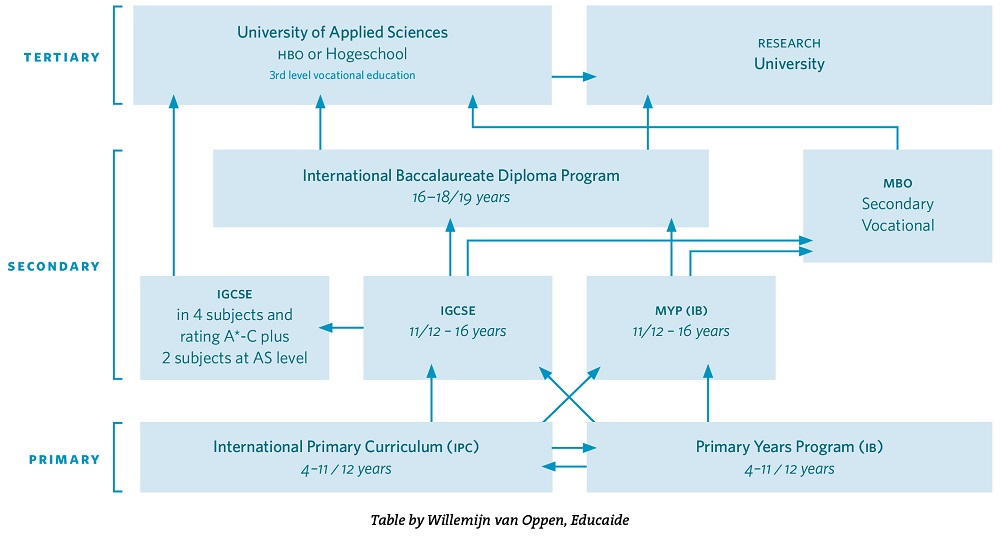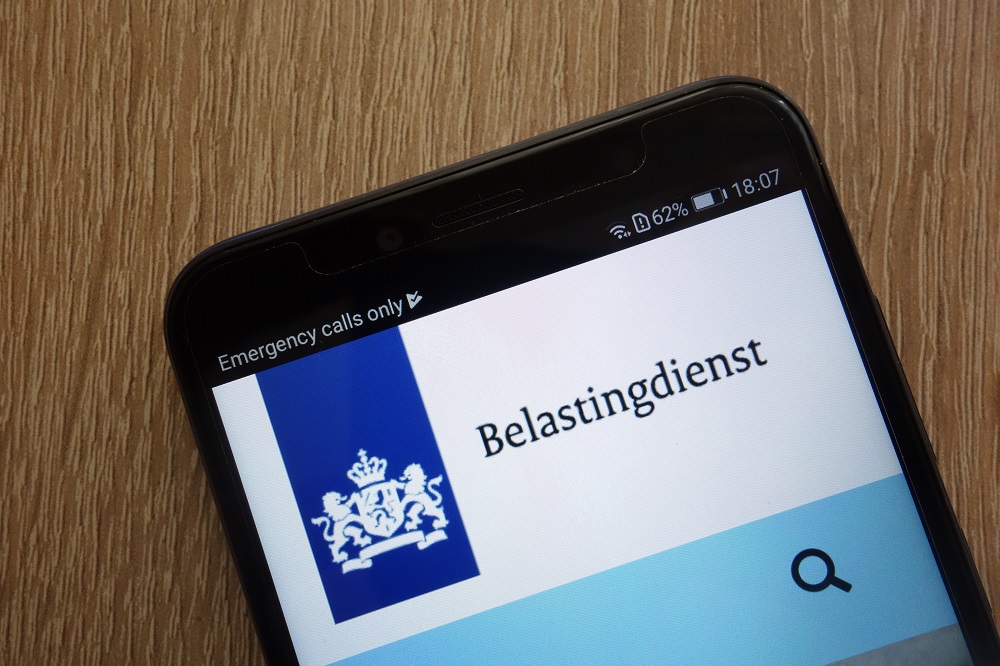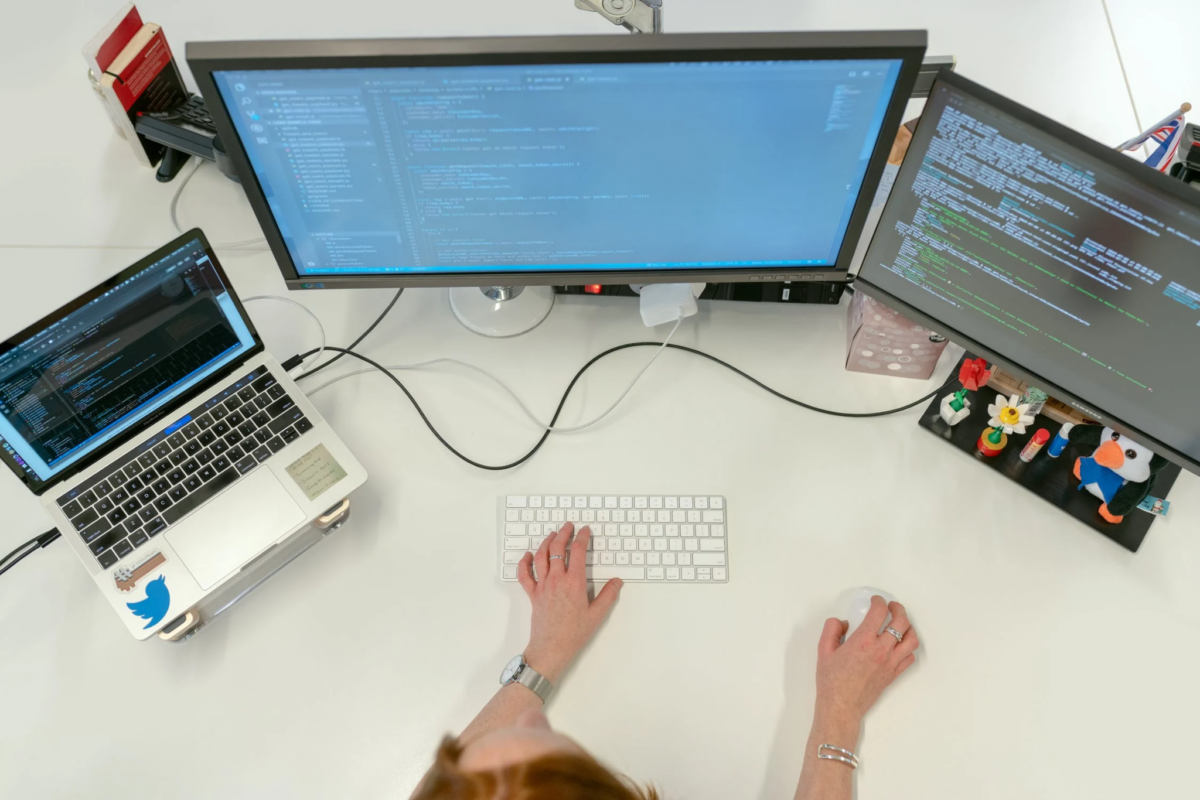Holland is host to a huge range of degree courses, taught in both Dutch and English. This makes it a popular study destination for students from all over the world! International higher education in NL may well differ to that of your national country. So, if you are considering applying to Dutch university, please keep reading. This page will outline how higher ed works in Holland, what kinds of institution are out there, and which degree courses are available. Learn which educational path is right for you, and what admission requirements you must meet to follow it, in NL.
Choosing your Institution
In the Netherlands, there is a ‘Dutch system of quality control‘. This guarantees that the education offered at all higher education institutions meets the same high standards. So, how do you pick the right one?
- When Dutch students decide where they want to study, they tend not to base their decision on which university is regarded most highly
- Instead they look at:
- Which specializations are offered
- What kind of academic traditions are upheld
- The unique atmosphere and style of the institution
Dutch Employers
- The three points above are the main ways in which Dutch Universities distinguish themselves
- Because Dutch students do not pick a higher education based on its ‘quality’, employers who are based in the Netherlands do not judge their potential candidates by which University they attended
- They are mostly interested in the degree a future employee has earned
Selection Criteria
For these reasons, it is advisable to compare Dutch Universities by looking into the three aforementioned points of comparison. It is also advisable to consider:
- The structure and content of the study programs a university offers
- The city in which it is located
- The clubs and extra curricular activities available
Quality Control in NL
There is one measure we recommend you take, in order to ensure that the higher education institution you are interested in is up to scratch:
- Find out whether it has been approved by the ‘Accreditation Organization of the Netherlands and Flanders’
- This is called the ‘Nederlands Vlaamse Accreditatie Organisatie‘ in Dutch
- The Dutch and Flemish government created this organization specifically for the purpose of monitoring the quality of the higher education courses and programs in the Netherlands
- Most institutions that offer English-language education are obligated to sign a special Code of Conduct
- This code sets out standards for Dutch higher education institutions
- It also lays down rules regarding the fair treatment of international students
- These rules are to do with: quality of educational programs, student recruitment policy, selection and counselling procedures
Dutch Higher Ed: the Basics
Let’s start by covering the fundamental set-up of higher education in the Netherlands:
- The higher education system in Holland is based on a three-cycle degree system
- The system begins with a Bachelor’s degree, progresses to a Master’s degree and concludes with a PhD degree
- Students can go through this system at ‘research universities’. These are referred to as ‘WOs’ in Holland
- Alternatively, students can gain a degree from a university of applied sciences. These are referred to as ‘HBOs’ in the Netherlands
- In Dutch, higher academic education is referred to as ‘universiteit‘
- Approximately 29% of the population of the Netherlands, who are aged between 15 and 75, have a higher education degree. This percentage is on the rise too!
- 49% of women and 45% of men in Holland, aged between 35 and 45, have acquired a degree
What Higher Ed looks like in Holland
To get a clearer idea of the educational options available to young people in NL, and how they can be reached, take a look at the diagram below:

Research Universities in NL
Dutch research universities offer higher education to students in the Netherlands, who hold either an IB-Diploma or a Dutch VWO. These higher education institutions can be found in:
- Maastricht
- Eindhoven
- Tilburg
- Nijmegen
- Wageningen
- Enschede
- Groningen
- Utrecht
- Amsterdam
- Leiden
- Delft
- Rotterdam
It is also possible to study in other locations, through one of the above univeristies:
- Some of these universities have faculties in other cities
- Many Dutch universities have partner institutions in other countries too
- Students can follow part of their course abroad, at one of these partner institutions
WO Higher Education in NL
As we explained earlier, students will follow a ‘WO’ education program at a Dutch Research university:
- This program will commence with a bachelor’s course, which will last three years
- It will be followed by a master’s course, which can last between one and three years
- A bachelor’s program is sometimes referred to as an ‘undergraduate’ course, and a masters as a ‘graduate’ course
- Unsurprisingly, Dutch ‘Research universities‘ tend to run research-oriented programs
- The programs taught at these universities are described as ‘Wetenschappelijk Onderwijs‘, or ‘WO’ for short
- This kind of education is designed to prepare students for careers that require highly skilled employees
Fields of Research
Dutch research universities offer students the opportunity to conduct research in a varied and exciting range of disciplines, in order for them to gain expertise in a specific field. These diciplines include, but are not limited to:
Universities of Applied Science in NL
Universities of applied sciences are called ‘Hogescholen‘ in Dutch. Here’s what you need to know about them:
- Primarily, Hogescholen offer programs of higher ‘professional’ education
- In Dutch, this is called ‘Hoger Beroepsonderwijs‘, which is abbreviated to ‘HBO’
- These programs prepare students for specific professions
- The education these universities offer tends to be more practice-oriented than that of research universities
HBO Education in NL
- Universities of applied sciences offer four-year bachelor’s degree programs
- Two-year master’s programs are also available
- All degree programs focus on preparing students for particular professions
- They tend to be more practically-oriented than programs offered by research universities
- HBO education consists of lectures, seminars, projects and independent study
- Students are also often required to complete an internship or work placement
- This normally takes up part of the third year of their course
- During their fourth year of study, students are usually expected to complete a final project or a major paper
Entry Requirements for HBO Education
- Students with an IB-diploma can attend a Dutch HBO
- In some cases, students who have taken the ‘IGCSE-diploma‘, along with two additional subjects at GCE-level, can also attend a Dutch University of applies sciences
- MBO-diplomas and Dutch HAVO/VWO-diplomas are sometimes considered acceptable entrance qualifications too
HBO programs focus on applied arts and sciences in one of the seven HBO sectors:
- Agriculture
- Engineering and technology
- Economics and business administration
- Health care
- Fine and performing arts
- Education/teacher training
- Social welfare
International Education in NL
Next to research universities and universities of applied sciences, Holland has a third branch of higher education. This branch is a lot smaller and lesser known. In the Netherlands, it is simply referred to as ‘International Education’, or ‘IE’:
- International education offers advanced training courses
- These are taught in English
- Originally, they were designed for people from developing countries whose jobs required highly specialized knowledge
- Most IE institutions are part of a research university
- They typically focus on courses relevant to developing countries
Tuition Language in NL
Across the Netherlands, Dutch higher education institutions are teaching a growing number of courses in English:
- It is possible to take specialized courses as well as entire bachelor’s, master’s and Ph.D. programs in English
- In total, there are over 2,100 international courses on offer
- These are all taught entirely in English
English Language Education in NL
In order to enrol in a program or a course that is conducted in English, you must have a sufficient command of the language. Your English will be tested in the following way:
- You must take an English language test
- TOEFL is a common example, which is recognized in the Netherlands. TOEFL stands for ‘Test of English as a Foreign Language’
- IELTS is also recognized in the Netherlands. This is the ‘International English Language Testing System’
- Some courses have their own, additional, language requirements
- Make sure you visit the database of the course you are considering applying for, to check whether you will qualify
Higher Education Taught in Dutch
- Whilst many degree programs are taught entirely in English, some expats opt to take on the challenge of studying a program in Dutch
- A number of university centers offer ‘Dutch as a second language‘ courses
- Said courses are specially designed for foreign students, whose lack of Dutch is the only thing stopping them from being qualified for admission
- In order to take a Dutch course, you must be able to prove that you have mastered the language sufficiently
Admission Requirements in NL
As we mentioned earlier, students are usually required to have an IB diploma, or a VWO-diploma, in order to be admitted onto a WO bachelor’s program in Holland. There are a few extra admission requirements they must meet on top of this:
- The minimum access requirement for an HBO course is an IB-diploma
- In some cases, undergraduates must hold an IGCSE-diploma, with two additional subjects at GCE-level
- Other courses stipulate that students must have a Dutch HAVO, a VWO-diploma or a level-4 MBO-diploma
Subject Clusters
- When applying for a WO or an HBO, students must have completed at least one subject ‘cluster’
- In Dutch a cluster is called a ‘profielen‘
- The cluster must fulfil the particular requirements that will have been laid out by the individual higher education program for which they are applying
Program Quotas
- Certain programs have a quota. In Dutch, this is called a ‘numerus fixus‘
- It is primarily courses related to the health sector that have quotas
- For these programs, places are allocated using a weighted lottery
- Prospective students who are over 21 years of age, and are not in possession of one of the afore-mentioned qualifications, can still be admitted onto a Dutch higher eductaion course
- To qualify, said students need to pass an entrance examination and an assessment
- The only access requirement for the ‘Open University‘ is that applicants are at least 18 years of age
Equivalent Diplomas for Dutch Higher Ed
Many international students need to apply to a Dutch higher ed institution, with a diploma from another country. How does this work in NL?
- To determine whether your diploma renders you qualified for admission to a Dutch course you must have it evaluated
- Your prospective educational institute will carry out this evaluation for you
- Admission requirements are set by individual institutions themselves in NL
- So, once you have found a study program that appeals to you, be sure to check its admission requirements. They will not necessarily be the same as those of other programs you have looked at
- It is essential that you speak, read and write English well!
- As we mentioned earlier, you must have passed an English language test to be admitted into higher education in the Netherlands
- IELTS and TOEFL are commonly accepted certificates
- Institutions may also, however, accept other tests
- Cambridge English, for example, is sometimes sufficient
Failure to Meet Entry Requirements
In principle, you can only come to the Netherlands as an expat student, if you meet all the aforementioned requirements. There are, however, a few exceptions to this rule. If:
1. You do not Speak Dutch
- If the course you want to take is taught in Dutch, and you do not have a sufficient grasp of the language, there is an answer
- Provided that you meet all the other requirements for the program, you can come to Holland for a year before your course begins, to study the local language and get your skills up to a sufficient level
2. You do not Meet Every Entry Requirement
- If you do not possess the correct qualifications to be admitted onto the course of your choice, you can come to NL for a year to follow a preparatory program
- Alternatively, prospective students who are over 21 years of age, and who do not possess one of the qualifications mentioned above, can qualify for access to higher education on the basis of an entrance examination and assessment
3. You do not Feel Ready!
- If you want to come to NL to study, but you simply do not feel prepared to take the leap, Dutch Universities might be able to help you
- In Holland you can take a ‘foundation year‘
- This is a transitional year that has been created specifically for non-European and non-Western students
- It is intended to help them prepare for their studies in the Netherlands
- The only access requirement for the Open University is that applicants be at least 18 years of age
Unqualified for a WO
If you would like to pursue a degree at a WO University in the Netherlands, you technically need to have either a ‘HAVO-diploma’ or the equivalent from another country. However, if you do not have this diploma, there is an alternative path you can take:
- The first year of every HBO and WO-program is known as the ‘propedeuse‘ year
- Once you have your ‘HBO-propedeuse‘, you can choose whether or not to continue with the bachelor’s program at your university of applied sciences
- If you opt not to, you can begin the first year of a WO university program
- To do this, you will usually have had to complete your propedeuse year in a subject that relates to what you wish to study at the WO
- After ‘investing’ a year in obtaining an HBO-propedeuse, WO universities will accept you without a HAVO diploma
Admittance to a Masters Program in NL
Once you have secured a WO-bachelor’s degree, you are automatically qualified to continue on to at least one master’s program in the Netherlands:
- Most students choose to do this at the university from which they were awarded their undergraduate degree
- You can, however, usually attend a different university if you wish
- This University can be in the Netherlands, or in another country
- If you want a change of direction, and you wish to apply to a different master’s program at the same university, there could be additional requirements that you must meet
Degrees in the Netherlands
Bachelor’s and Master’s Degrees in NL
Bachelor’s and master’s degrees are awarded by both universities and universities of applied sciences in the Netherlands:
- At the end of an HBO bachelor’s degree program graduates obtain the title: ‘Bachelor of …’, for the professional field of study in which they have achieved their qualification
- Having completed a WO-bachelor’s degree course, graduates are awarded a ‘Bachelor of Science’ or a ‘Bachelor of Arts’ degree
- The same distinction is made for the names of master’s degrees
Associate Degrees in the Netherlands
An associate degree program is a two-year ‘short cycle’ degree program:
- Dutch people also refer to it as an ‘associate degree’
- It is offered by universities of applied sciences in the Netherlands
- It enables students to obtain a professional qualification in a condensed period of time
- An associate degree is intended to help them learn skills and competencies needed to improve their chances of finding a job
- To be accepted onto an associate degree program, prospective students typically require the same qualifications they would need for admittance to an HBO bachelor’s program
- Once you have obtained an associate degree you can seek employment
- Alternatively, you could move on to the last two years of an HBO-program, and obtain a bachelor’s degree
Doctorates in the Netherlands
In Holland, students who make it through their third cycle of higher education will be awarded a doctororate degree:
- This impressive accolade can be achieved only at a research university in Holland
- All research universities in the Netherlands are eligible to award the country’s highest academic degree, the ‘doctoraat‘, to their students
- They can also award their pupils a Ph.D.
- This degree entitles someone to use the title ‘doctor’, or the abbreviated form ‘dr.’
- The process by which a doctorate is obtained is referred to as the ‘promotie‘ in Dutch
What actually is a doctorate degree?
- A doctorate is primarily a research degree
- Students who embark upon a doctorate must write a dissertation
- This must be based on original research, written up in full and publicly defended
- The minimum amount of time required to complete a doctorate is four years
How to Apply for a Doctorate Program in NL
- Most students working on doctorates are actually paid employees, rather than ‘students’
- They apply for a position as an AIO
- This stands for ‘assistent-in-opleiding‘, and is a research assistant job
- It is not essential for a doctoral student to take on such a position, in order to obtain their Ph.D.
- Working as an AIO merely enables them to have a source of income, whilst they are working towards their Ph.D
- AIO positions are advertised in the same way jobs are in Holland
- Candidates must approach a supervisor directly in order to apply
- Candidates with foreign qualifications can apply for these positions alongside their Dutch counterparts
- They must ask permission to write their dissertation in another language
- Prospective doctoral students may also contact a university faculty independently, and write their own research proposal
- Sometimes the research for a dissertation can be conducted in the candidate’s own country
The Dutch Higher Ed Credit System
The European Credit Transfer and Accumulation System (ECTS) is used by all higher education institutions in the Netherlands. Here are the bullet points:
- A WO bachelor’s program stipulates that students must complete 180 credits
- Ordinarily, a WO master’s program demands that between 60 and 120 credits are completed over the course of one or two years
- An HBO bachelor’s program asks that students amass 240 credits
- 120 credits are required for an associate degree
- The number of credits a student manages to achieve dictates the degree that he or she is ultimately given
How Many Credits?
120 credits are always required for the completion of a degree in one of the following subjects:
- Engineering
- Agriculture
- Dentistry
- Math
- Natural sciences 120
Universities ask that their students complete 180 credits if they are following programs in:
- Medicine
- Veterinary medicine
- Pharmacy
An HBO master’s program requests that students complete 60 to 120 credits
 Side Note
Side Note
The Dutch Grading System
The grading system has been the same for several decades in the Netherlands. Here’s how it works:
- The grading scale in Holland is fairly simply
- According to the scale, 1 is very poor and 10 is outstanding
- The lowest passing grade is 6
- 9s are seldom given
- 10s are extremely rare!
- Grades 1-3 are hardly ever used
 Useful links
Useful links
- Study in Holland: Everything you need to know about higher education in NL
- Millian: Find masters programs and business courses in NL
- Educaide: Advise on all forms of higher education in Holland

The Holland Handbook 2024
It is that time of year again; the new and annually-updated version of The ...

Dutch Taxes
Taxes are always complicated. If you have moved to the Netherlands from another country they ...

The UnDutchables 9.0
Following the legendary previous eight editions of The UnDutchables, the 9th edition of this all ...

Making the most of your Dutch home
Whether you are renting, staying in a long-term AirBNB or have just bought a ...

Gift giving in the Netherlands-all ...
If you feel like skipping your birthday, you may be in for a challenge when ...

10 things you will find in every Du ...
The Dutch are very fond of houseplants, the more the merrier! You will find the ...

Obtaining a Mortgage as an Expat in ...
Obtaining a mortgage as an expat in the Netherlands can be a complex process, as ...

Help me move to the Netherlands!
Obviously, the decision to move to the Netherlands is not one to be taken lightly ...

The Impact of Technology on Educati ...
Education is unending and pivotal in society. Technology is one of the most dynamic entities ...

Five Renovation Tips to Increase yo ...
Learn how much home renovations cost – and which repairs increase the home value, and which ...